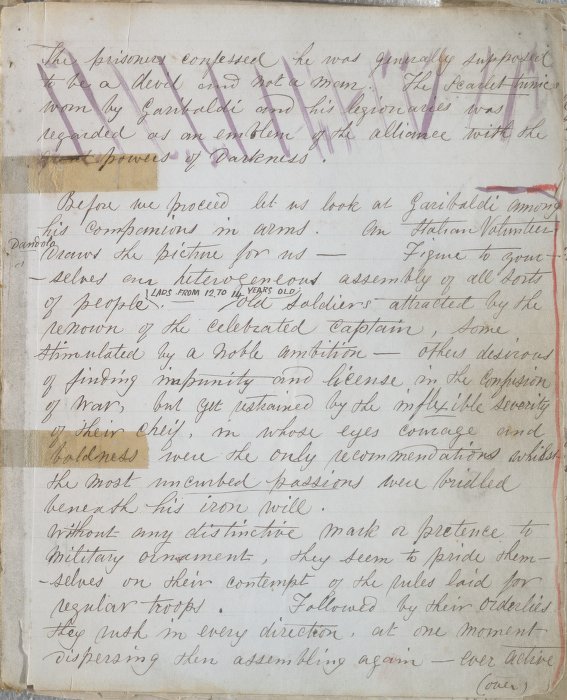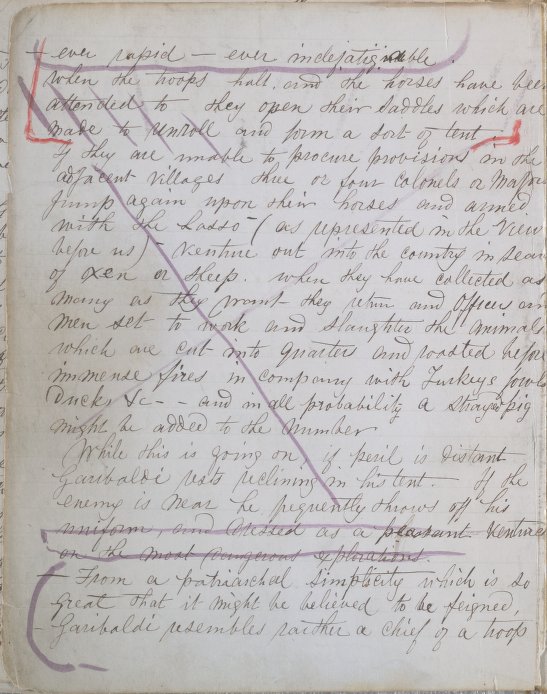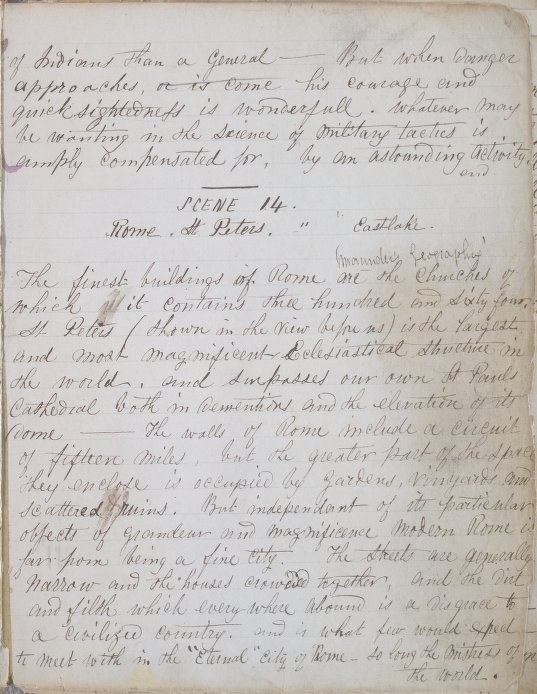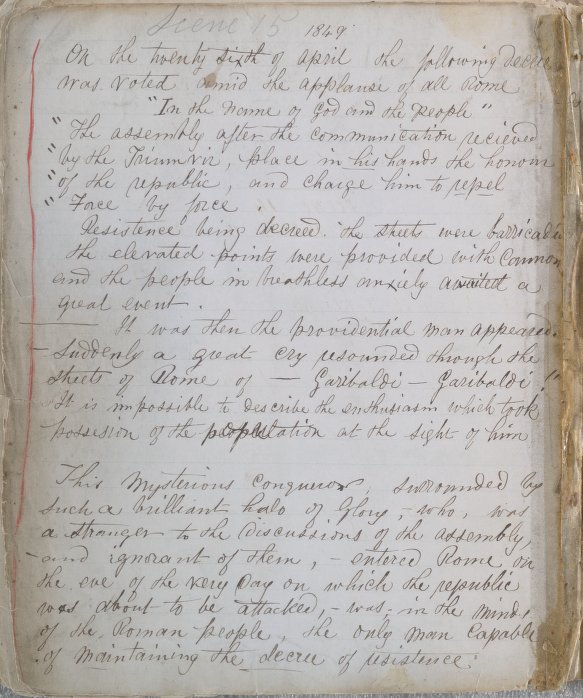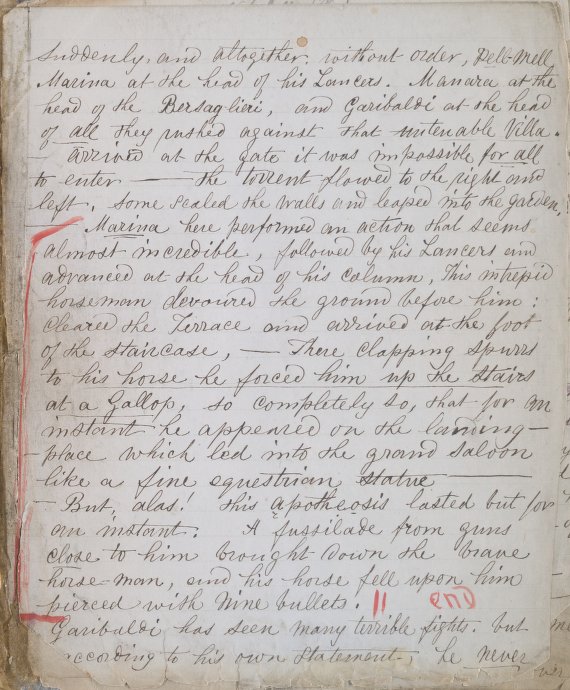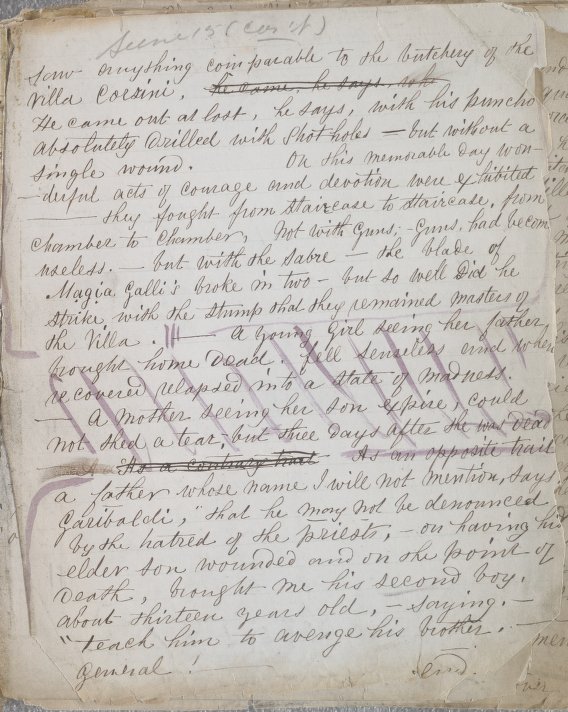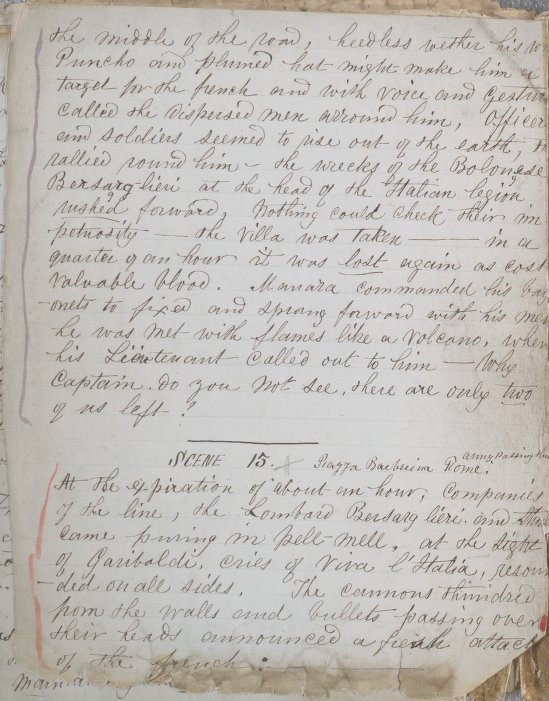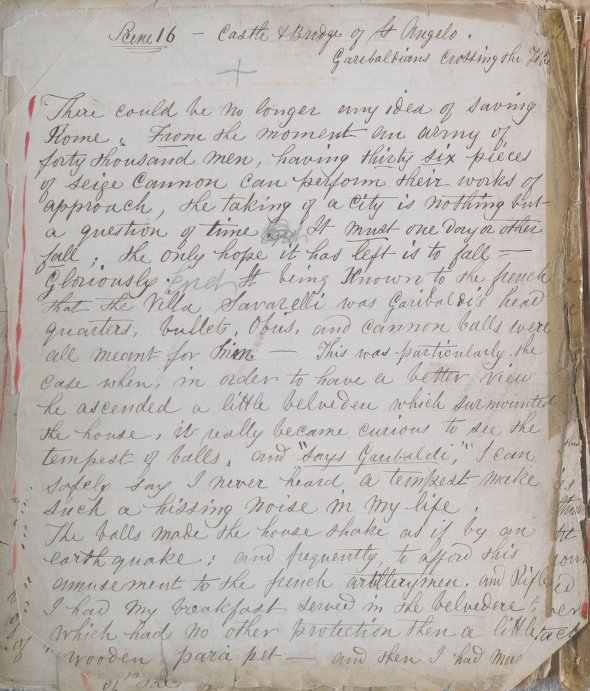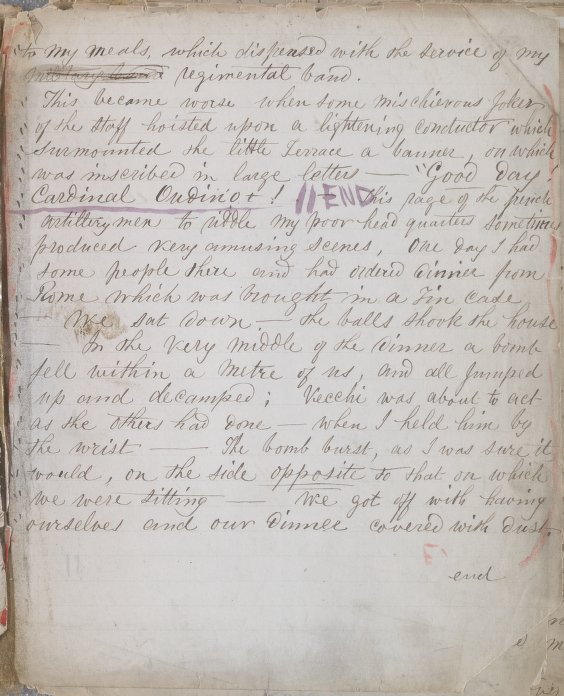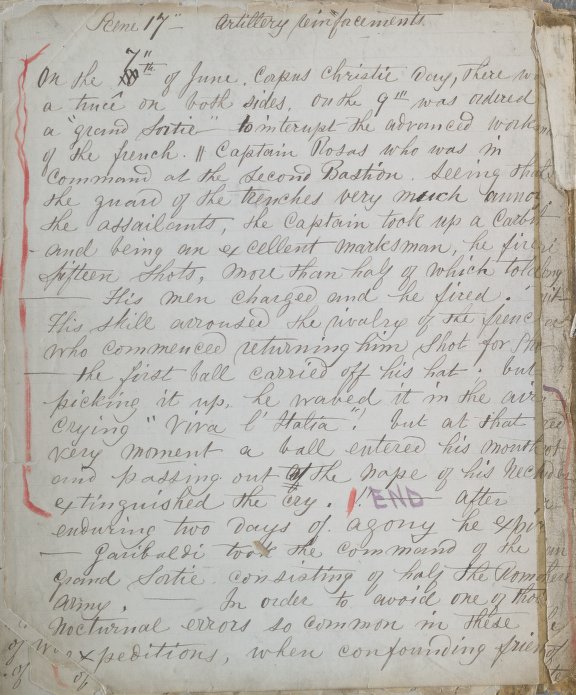Page 51
The prisoners confessed he was generally supposed
to be a devil and not a man. The scarlet tunics
worn by Garibaldi and his legionaries was
regarded as an emblem of the alliance with the
great powers of darkness.
Before we proceed let us look at Garibaldi among
his companions in arms. An Italian Volunteer
Dandola
draws the picture for us— Figure to your
selves our heterogeneous assembly of all sorts
of people lads from 12 to 14 years old—old soldiers attracted by the
renown of the celebrated captain, some
stimulated by a noble ambition—others desirous
of finding impurity and license in the confusion
of war, but yet restrained by the inflexible severity
of their chei, in whose eyes courage and
boldness were the only recommendations whilst
the most uncurbed passions were bridled
beneath his iron will.
Without any distinctive mark or pretence to
military ornament, they seem to pride them
selves on their contempt of the rules laid for
regular troops. Followed by their orderlies
they rush in every direction, at one moment
dispersing then assembling again—ever active

